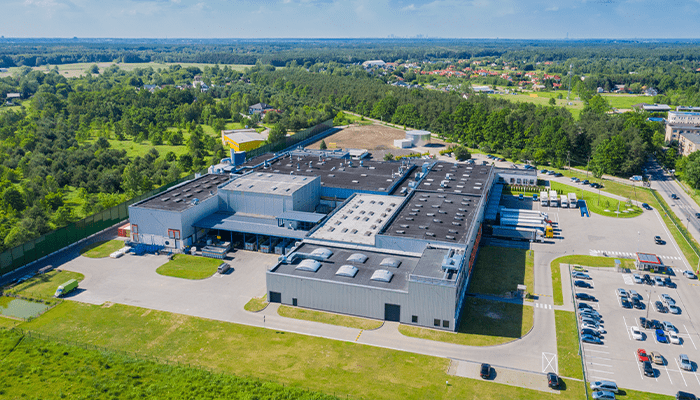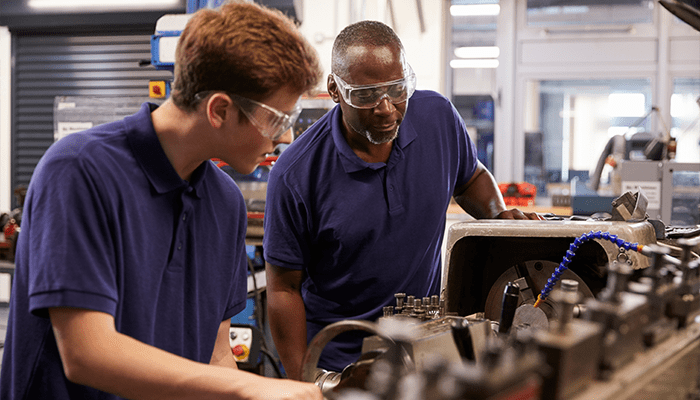
Revolutionizing Manufacturing: How AI is Transforming the Industry
Artificial Intelligence (AI) is in its infancy for use in the manufacturing sector. Manufacturers who have adopted it as a tool are finding ways to improve their operations, reduce costs, enhance product quality, and drive innovation. Here are some common applications of AI in manufacturing:
- Predictive Maintenance: AI algorithms allow manufacturing maintenance professionals to analyze data from sensors and equipment to predict when machinery is likely to fail. The ability to foresee the possibility of equipment failure allows maintenance and operations to work together to schedule maintenance before breakdowns occur, minimizing downtime and reducing maintenance costs.
- Quality Control: Manual inspection has long been used in manufacturing but is not 100% reliable. Inspections can now be performed by AI-powered computer vision systems, which can inspect and identify defects in real time on the production line, ensuring products meet quality standards.
- Process Optimization: Manufacturers are constantly seeking ways to optimize the manufacturing process. AI allows process engineers to model the process and determine where the potential inefficiency may be, adjust the models, and see the improved results before making the adjustments in the actual process.
- Production Planning and Scheduling: Resource allocation is critical to capacity planning and production scheduling. AI-driven algorithms can create optimized production schedules that consider machine availability, labor constraints, and order priorities. Improved scheduling allows manufacturers to provide customers with an accurate delivery date, thereby improving overall customer satisfaction.
- Product Design and Development: Engineering is exploring the use of AI in its product design process. AI provides engineering with the ability to simulate and analyze product design. Engineering can identify potential issues early in development, such as product safety, durability, and reliability.
- Human-Robot Collaboration: Collaborative robots, or cobots, equipped with AI can work alongside human workers to perform repetitive or dangerous tasks, improving efficiency and safety on the factory floor.
- Inventory Management: Manufacturers continue to struggle with long lead times for material availability. The ability to predict the need for materials early allows the manufacturer additional time to procure the materials, lessening the impact of the longer lead times. Additionally, AI-driven algorithms' ability to optimize inventory levels of the required materials may lead to lower inventory levels of materials not required, thereby reducing carrying costs.
- Worker Safety: Safety is an important concern in the manufacturing industry. AI-based systems can monitor worker safety and provide real-time alerts to prevent accidents in the factory.
Although the manufacturing sector has yet to embrace AI fully, AI-driven solutions can lead to improved efficiency, cost savings, and a competitive advantage in the manufacturing industry. As technology evolves and its benefits can be quantified, the technologies used will likely grow. Contact AssuredPartners Manufacturing for more insight.
Featured News & Insights

Artificial intelligence is no longer a futuristic concept. For manufacturers, it is a practical tool already delivering measurable results in efficiency, quality, and risk management. That was the...

Manufacturers who import raw materials remain concerned about tariffs and their potential impact on costs and supply chain stability. While there’s no one-size-fits-all solution to reduce risk, there...

Business risk broadly refers to the potential for losses or operational disruptions stemming from internal or external factors. These factors may include market changes, regulatory compliance issues,...